Annual review 2015-16

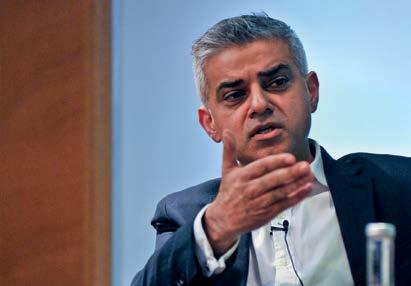





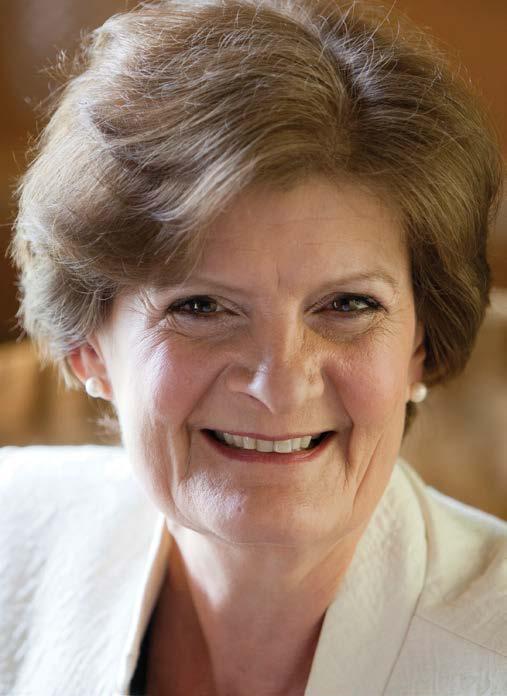 Chair
Chair
My early days in the environment movement were characterised by a freewheeling optimism, born of environmental sustainability being a new issue in which people were interested but knew little about. Green Alliance was at the heart of that entrepreneurial age. That the organisation is still at the centre of the big debates about our future, and still making change happen, is testament to its ethos and track record of constructive engagement and non-partisan endeavour. The context is much tougher now, not least since the Brexit vote in June 2016, and it is no longer possible to make progress by having the best ideas as it sometimes was in the 80s and 90s. Achieving change today requires compelling evidence, a powerful network of relationships across government and strong external alliances.
I hope you will see ample evidence of those capabilities in this year’s annual report. I would draw your attention to three examples which have given me heart: the analysis we led which showed the government how it could make the transition to subsidy free renewables, and convinced it to adopt a longer term contracting framework for offshore wind; the rich discussion we stimulated about the future of support for the natural environment, which is moving centre stage as the UK must find a replacement for the EU’s Common Agricultural Policy; and the work we convened with national and local NGOs about creating a greener London, which has stimulated important initiatives on clean energy and clean air from London’s new mayor. Amid widespread concern about the future, this is progress of which we can be proud. However, there are some subtle things about Green Alliance you won’t read in this report, which I get to see as chair of the organisation and which I would like to share. First, the energy and dynamism of our staff, who tell me Green Alliance provides the best work culture
they’ve ever experienced. Second, the extraordinary reach of Green Alliance’s ideas and insight, which goes higher and wider than most people would expect: for instance, the readership of our blog includes leaders in politics and civil society. Discretion and modesty mean we cannot report the frequent private discussions we have with senior decision makers in government and other sectors.
And, third, the amazing role we play at the heart of a cross sectoral alliance. Without our many partners Green Alliance would not exist. Without their trust we would be just another think tank, throwing out ideas, but with a fraction of the impact.
While these attributes are deeply embedded in our DNA, for the past six years we have been brilliantly led by our director, Matthew Spencer. Now he is leaving us for a senior role at Oxfam, and this is my chance to thank him, on behalf of the board of trustees, current and previous, for the tremendous job he has done. He has lifted Green Alliance to new heights, through his insightful and astute leadership, high quality analysis and deft political footwork. We will miss him enormously, but give our warm thanks and very best wishes in his future career. We hope to have a new director in place by early 2017.
As we enter the stormy Brexit seas we are once again on the front foot, developing a new sector wide coalition, to ensure that UK environmental standards are as high or higher than our European neighbours and global competitors. This is a period of great jeopardy for the environmental agenda, but there are also huge opportunities. Nearly four decades on from our birth we are adapting again to make sure our collaborative, pluralist approach meets this biggest of challenges. Thank you for your support.
“As we enter the stormy Brexit seas we are once again on the front foot, developing a new sector wide coalition.”
Green Alliance is an independent think tank with a powerful network of business and NGO partners. Our work has led to greater political support for environmental solutions in the UK.
We believe that pluralist politics, informed by strong analysis, dialogue and public participation creates better policy, and is a powerful route to a greener future and better lives. Active leadership from politicians, civil society and business can accelerate this process by ensuring that it is fair, has a shared goal and creates a stable investment environment.
The conviction that better lives and a better future can only be achieved by respecting the value and constraints of the natural environment is the defining belief of our staff, trustees and network.
Our strategy for 2015-18, developed before the Brexit vote in June 2016, has one overarching ambition: to create a greener Britain through better policy. This remains our goal, but we are reorienting our plans to make sure we, and the wider environmental movement, are in a strong position to shape the post EU referendum outcomes, working to ensure that we protect and, where possible, enhance our environmental safeguards.
Our pre-existing commitments, to improve public participation in policy making, secure new political leadership for the natural environment and nurture a new generation of environmental leaders will be carried out alongside a new cross sectoral collaboration on environmental leadership in the post referendum period. This new Greener UK Unit will be based at Green Alliance.
Green Alliance’s policy recommendations will be developed, as always, in partnership with leading businesses to ensure workable solutions.
Inspiring new leadership by influencing political processes, advocacy work with government and engaging leading political thinkers and senior politicians in the environment debate.
Providing strong analysis with robust evidence for alternative policies that works for government, business and the environment.
Creating powerful alliances to ensure NGO and business voices are heard on issues related to the protection and improvement of the environment.
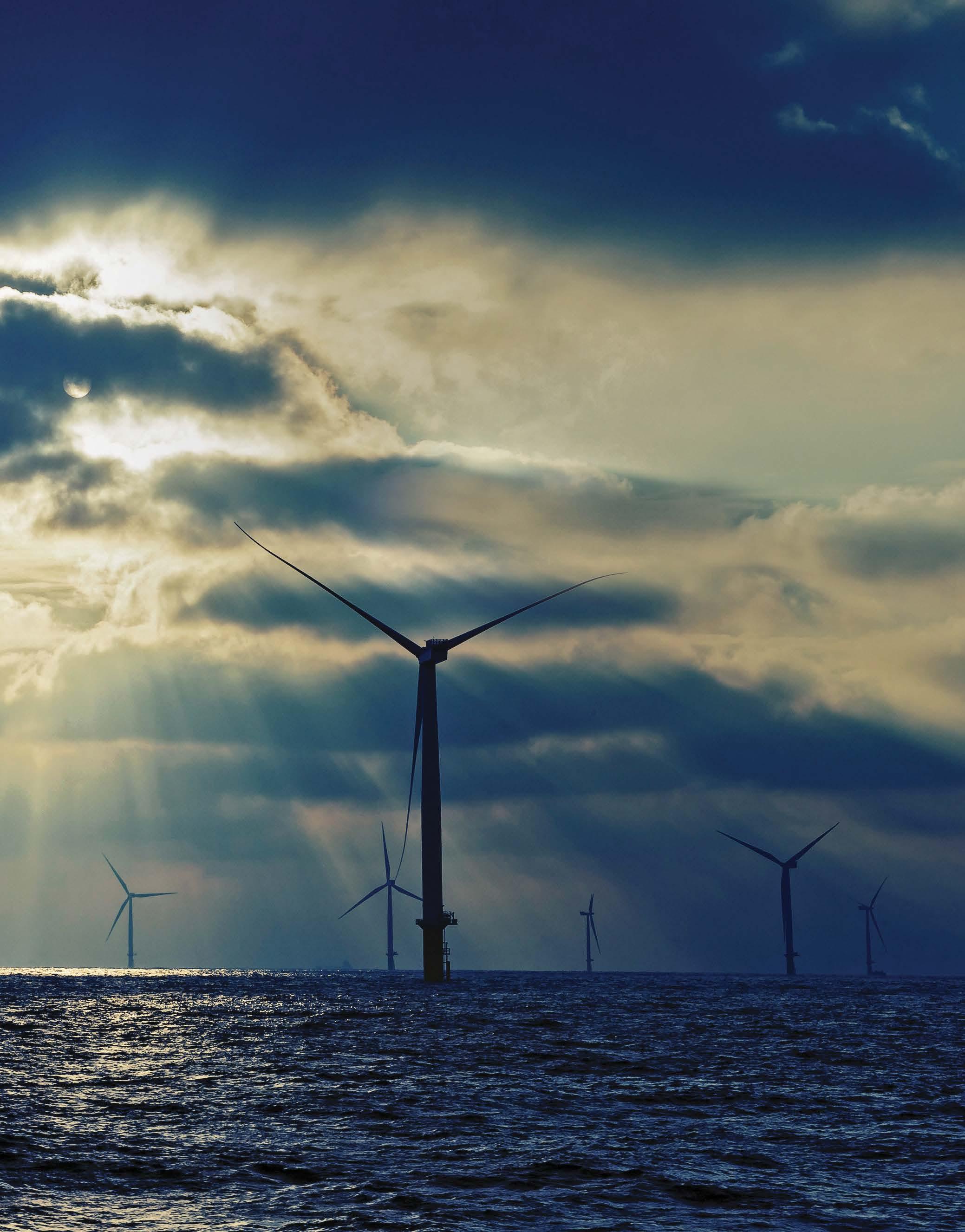
“The thinking done by Green Alliance is helping companies like Siemens work out what it means to be a 21st century business in a decarbonising world. The team’s insight into the worlds of sustainability, politics and business and how they can be aligned for the good of the planet is a resource no single business could develop.” Matthew Knight, director of strategy and government affairs, Siemens
Effective political leadership is essential to making progress towards a green economy. Green Alliance understands the political process, has strong relationships with decision makers and is a respected source of new policy thinking. We also provide an important catalytic role for business and NGOs in influencing the processes of political change.
Our highly focused advocacy, working with influential business and NGO partners, helped to secure a strong UK position at the 2015 Paris climate negotiations. The event Beyond Paris, co-hosted with the CBI and supported by National Grid in September 2015, also helped to raise expectations with a challenge to the government by former vice president of the US, Al Gore, on its climate action. In December 2015, the UK’s leadership at the Paris conference was significant in determining an ambitious global climate deal, fulfilling the promise made in the prime minister’s climate pledge, brokered by Green Alliance earlier in 2015.
The political momentum we helped to create, by brokering a UK party leaders’ pledge on climate in 2015, led to the historic announcement in November 2015 that the UK would end the use of unabated coal by 2025.
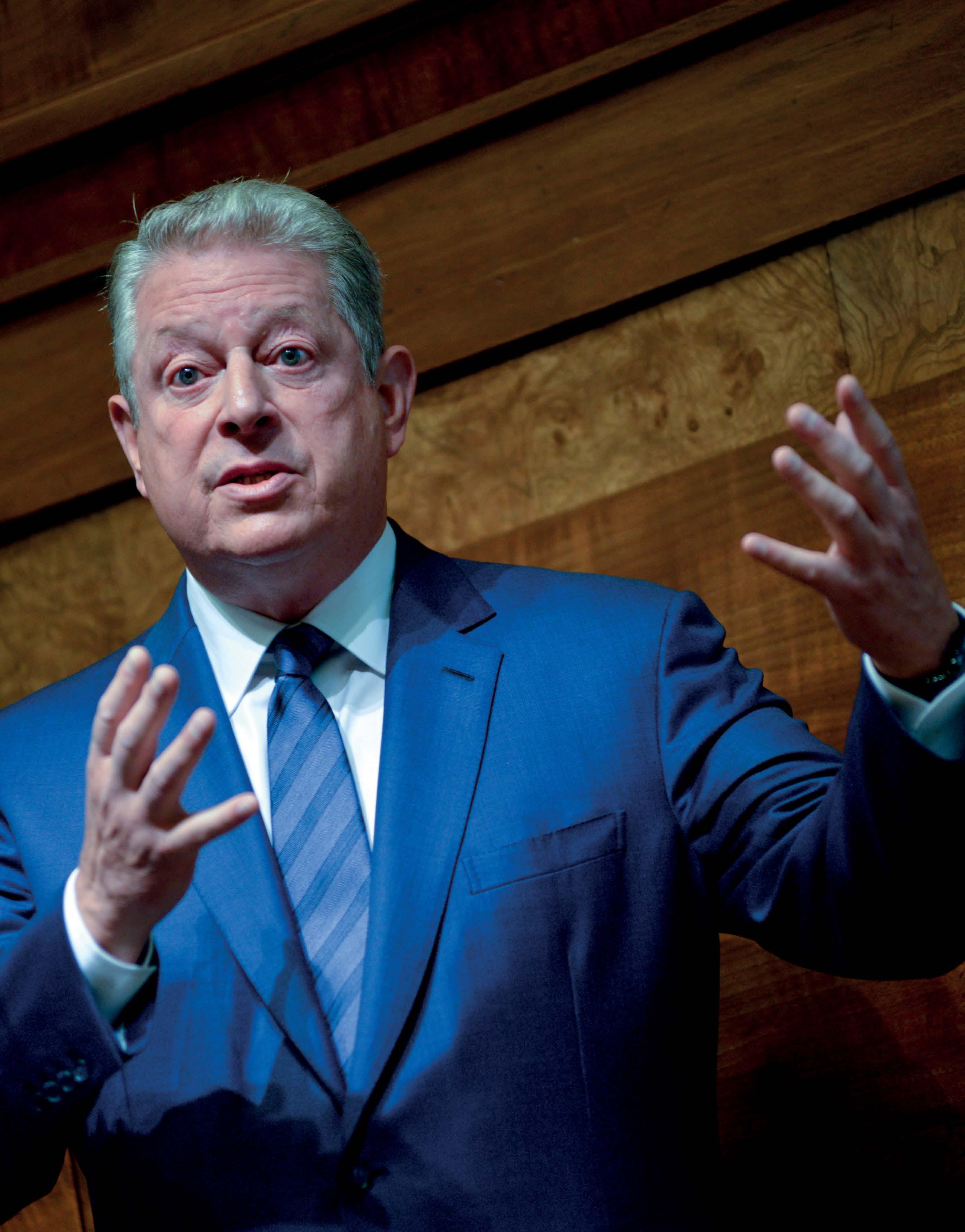
“I wish to compliment Green Alliance and the CBI for taking such a leadership role in trying to bring people together across the partisan divide and elevate the significance of the climate crisis.”
Former vice president of the US, Al Gore, at our Beyond Paris event
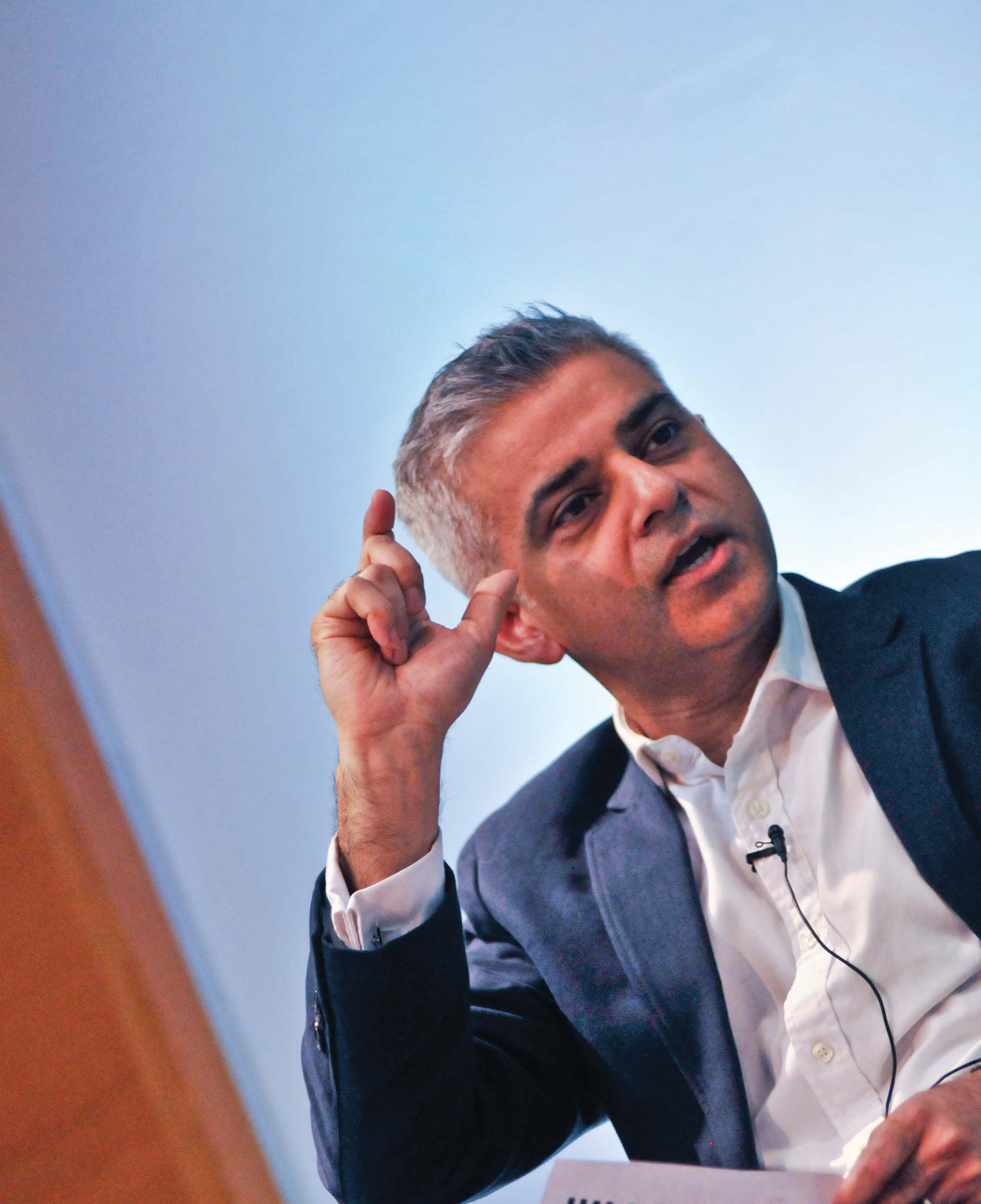
“I’m determined to be the greenest Mayor London has ever had.”
Mayor of London, Sadiq Khan, on the Green Alliance blog
Our Greener London project, in collaboration with the UK’s leading environmental NGOs, engaged all the leading mayoral candidates in a race to the top on the environment in advance of the May 2016 elections. The work included a report and a hustings at which Londoners were able to challenge the candidates. Sadiq Khan has now adopted some of our suggestions and has made tackling air pollution one of his main priorities in office.

The Guardian , 29 February 2016
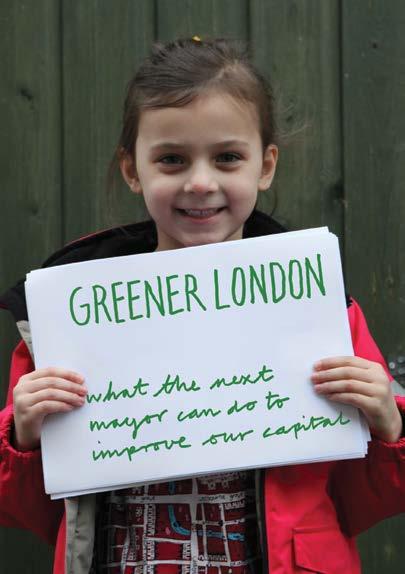
“Environment groups throw down the green gauntlet to London mayoral candidates.”
“I really enjoyed the Greener London hustings. It was one of the most well organised events of its kind I’ve seen in years.”
Pilita Clark, environment correspondent, Financial Times
The renewal and rapid decarbonisation of UK’s energy infrastructure is the biggest investment challenge of the age. Green Alliance is working with leading business and NGOs on the policy frameworks necessary for investment and innovation.
It was Green Alliance’s analysis which informed the government’s decisions to commit to 10GW of offshore wind in the 2020s and £730 million funding for the industry. The increase in certainty led Danish company Dong to promise a further £6 billion investment in its UK offshore projects.
In Getting more from less we demonstrated how a strategy focused on reducing electricity demand, as well as supply side opportunities, would save consumers and businesses £2.4 billion by 2025.
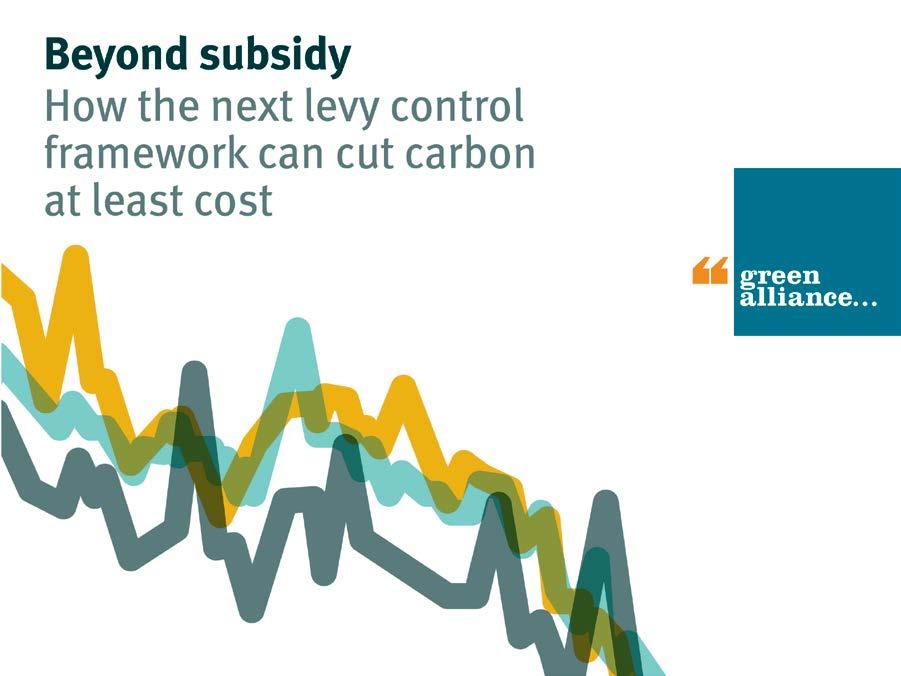
And our March 2016 report Beyond subsidy showed how better policy could result in subsidy-free renewables between 2020 and 2025.
The Guardian , 14 March 2016, on Green Alliance’s report Beyond Subsidy
“Chancellor urged to invest public money in renewable energy.”
“If the UK were to adopt an efficiency strategy like the one proposed by Green Alliance it would not only save businesses and consumers £2 billion a year, but also create top line revenue growth opportunities.”
Sonny Masero, chairman of award winning energy management business, Demand Logic, on our report Getting more from less

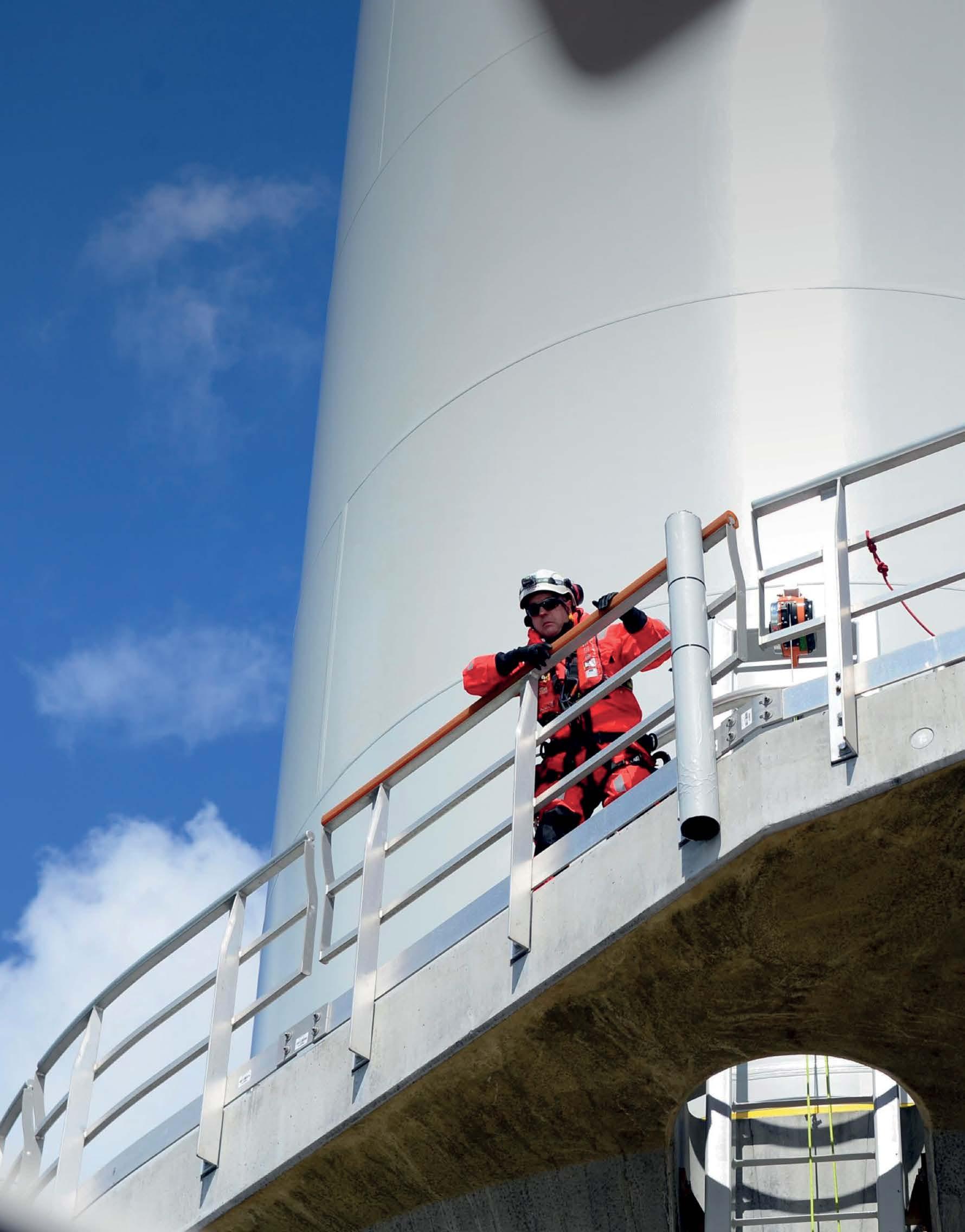
“This report restates the case for low carbon infrastructure, and illustrates how it can deliver real value for money – with economic, environmental and social benefits.”
Sara Thiam, director, Institution of Civil Engineers, on our report Scotland’s way ahead
Our research into how government spending cut proposals would affect the Department for Energy and Climate Change showed that the reductions planned would mean the UK missing its decarbonisation targets. This was influential in the decision to protect important areas of DECC’s spending from cuts, announced in the 2015 autumn statement.
“We urge the government to take note of this report and support the UK and Grimsby’s position as a global leader in renewables.”
Growing the UK’s coastal economy
In two reports, published in 2015, we showed how the offshore wind industry is reviving Grimsby’s economy and how much Scotland would benefit from investment in low carbon infrastructure.
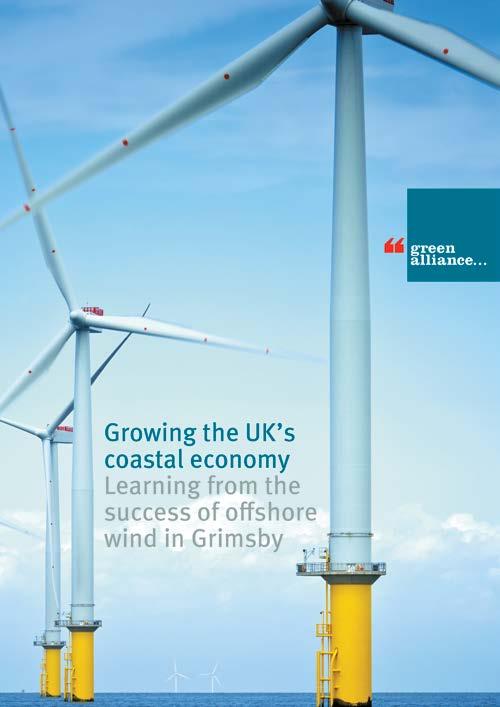
We worked with 10:10 to commission a Keep it Clean light installation in Manchester city centre, in Spring 2016, to highlight people’s desire for clean energy to power the Northern Powerhouse.
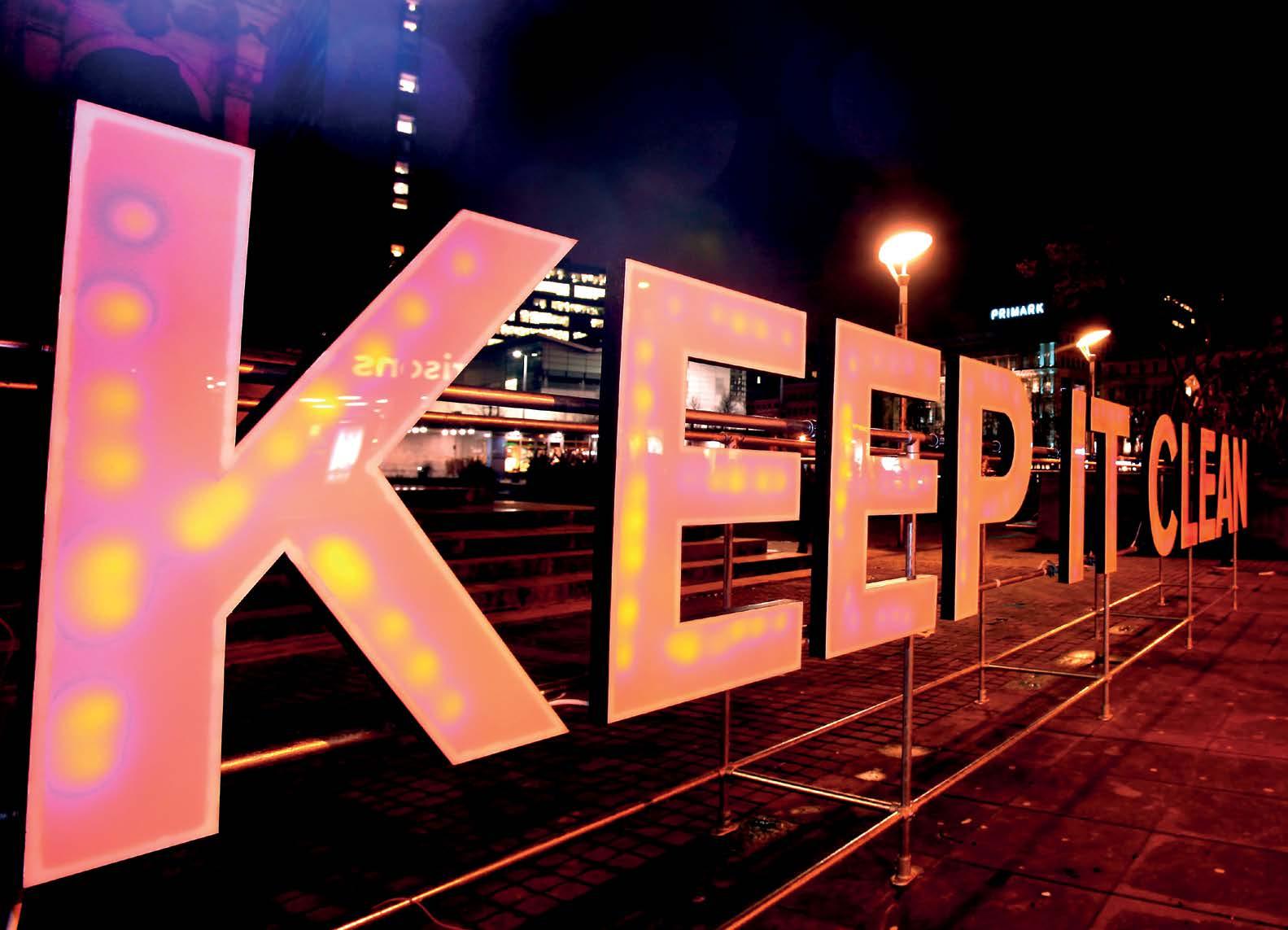
“United call for George Osborne to ensure Northern Powerhouse propelled by green energy.” Headline in The Northern Echo, 11 March 2016, on Green Alliance’s ‘clean energy declaration’
Our data, commissioned from RegenSW, about renewable energy development across the country, highlighted the extent of its contribution and value across different regions of England and Wales. Our ‘clean energy declaration’ for the Northern Powerhouse, signed by 100 business and civil society organisations, demonstrated widespread public support for renewables to Westminster.
Our online Renewable Energy Locator is an interactive tool which allows people living in England and Wales to see how much renewable energy is being generated in their area, compared to others. It had over 22,000 views in its first three months.

Reversing the long term decline of the natural environment is a complex challenge. We are generating new thinking and building powerful new alliances to support political leadership that will restore Britain’s natural environment for the future.
The first major output of our Natural Environment theme, in January 2016, was a proposal to combine traditional nature conservation and natural capital thinking in a new approach. This idea has helped to reinvigorate the debate into how to tackle the long term decline of nature in Britain.
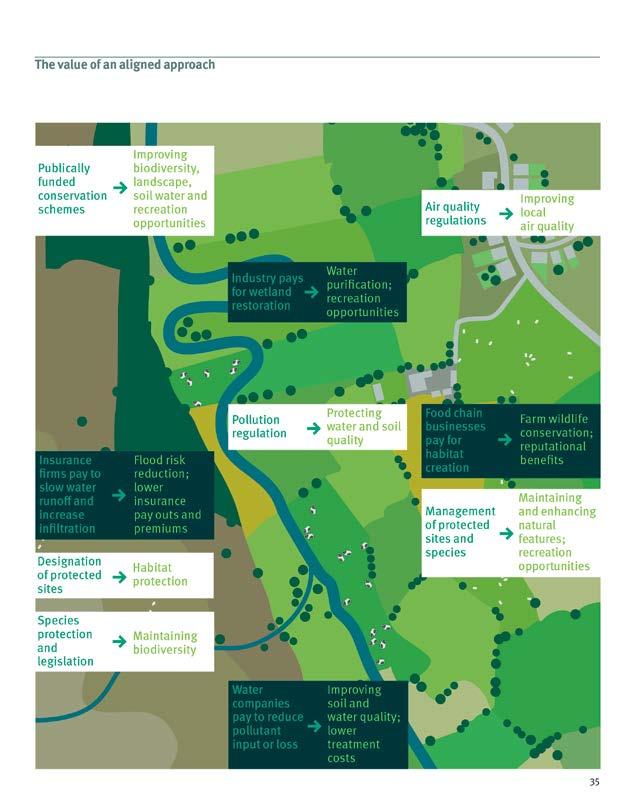
“Natural capital accounting could well be a way of engaging more farmers and landowners in the long term maintenance of environmental assets, particularly where the value can be identified, so I welcome the joint approach proposed by this report.” David Fursdon, farmer and chair of the 2013 Future of Farming Review, on our report Natural Partners
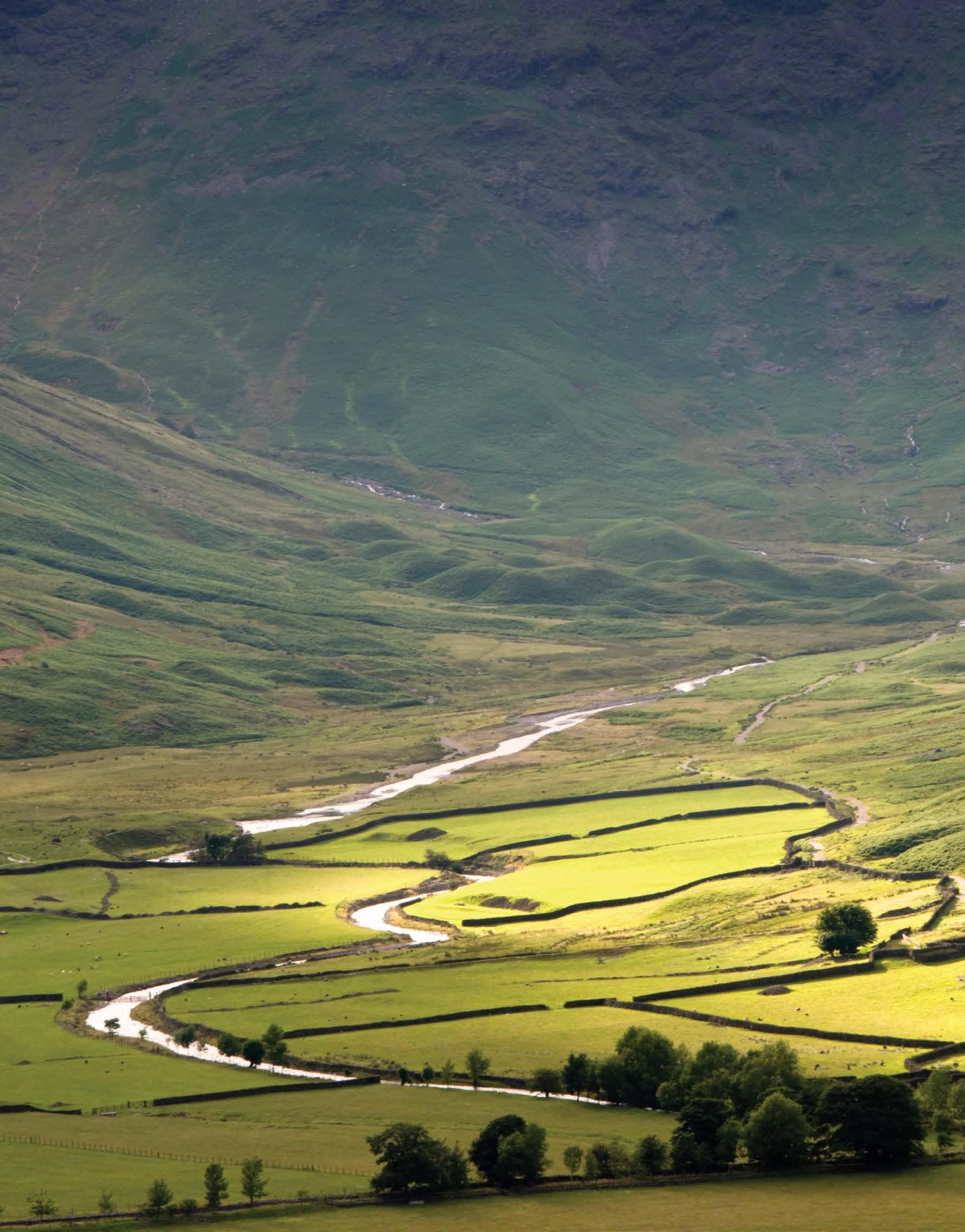
“Green Alliance’s report explains why it is crucial to harness both ecological and economic perspectives if we are to reverse the accelerating loss of nature.”
Paul Morling, principal economist at RSPB, on our report Natural Partners

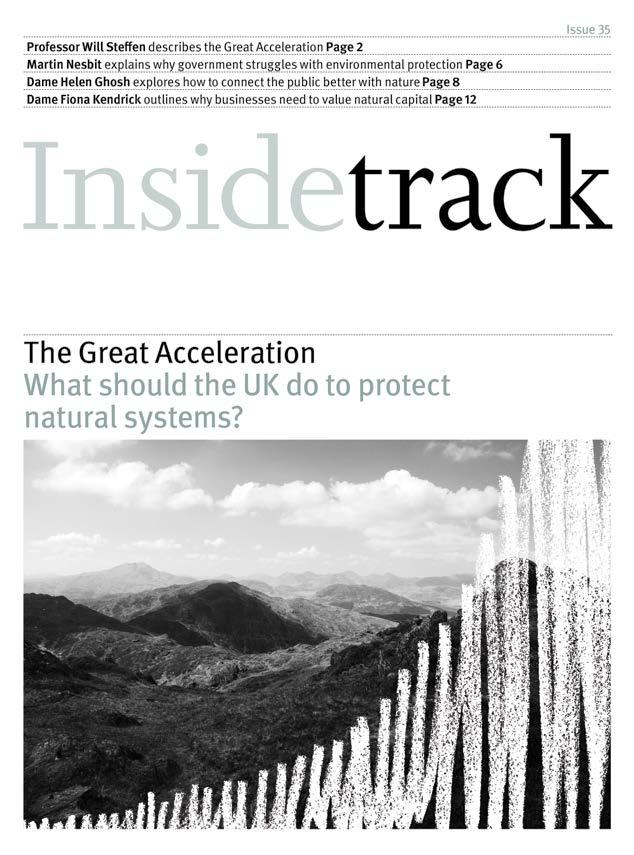
“Without a strong public mandate, it is hard to see the UK taking the bold and urgent action needed to address the speed and scale of environmentally damaging human activity.”
Dame Helen Ghosh, director general, National Trust, in Green Alliance’s journal Inside Track, June 2015
Rising demand for resources is unsustainable and causing resource insecurity. We are promoting the development of a circular economy in the UK and Europe, in which resources are sustainably sourced and kept productive rather than wasted, reducing the problems of waste disposal and over extraction.
Our infographic The social benefits of a circular economy showed how better design standards and a bigger market for reused and recycled materials across Europe would lead to more jobs and longer lasting products.
A government review into how more consistent recycling can be achieved, published in September 2016, was initiated following advice from Green Alliance’s Circular Economy Task Force.
“I have found my involvement with Green Alliance extremely valuable, as they have a strong practical knowledge around the opportunities and challenges of the circular economy and the Circular Economy Task Force is a great opportunity to collaborate with other businesses and sectors.”
Caroline Laurie, head of sustainability, Kingfisher plc

We analysed the potential benefits to the European labour market of a more circular economy and found that it could lead to 35,000 new jobs in Germany, Poland and Italy alone. This report was our first output as part of the Alliance for Circular Economy Solutions (ACES), a new partnership between European think tanks and business organisations. For more details see page 24.
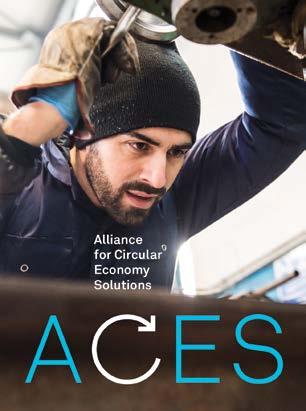
“This report is the latest reminder that there’s a compelling business case for an ambitious circular economy policy in Europe.”
Nick Molho, executive director, Aldersgate Group, one of our ACES partners, on our report Unemployment and the circular economy in Europe
In 2015-16, our blog increased in profile as a leading outlet for informed opinion about current environmental policy and politics in the UK. We renamed it Inside Track this year, taking on the name of our former journal.
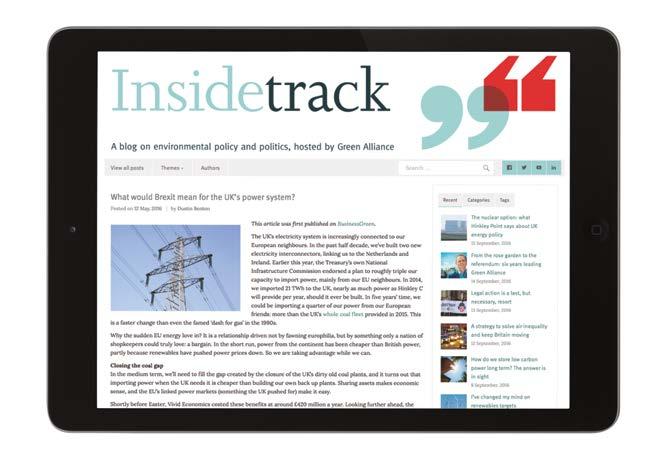
76 blogs posted
41 external contributors
34,700 visitors

58,000 views
“Green Alliance’s blog has become required reading.”
Hugh Raven, chair of the Marine Conservation Society and trustee of the John Ellerman Foundation








ACES is a powerful new advocate in Europe for ambitious resource policy founded by Green Alliance in 2015. Led by a group of influential Belgian, Dutch, British and German think tanks and business networks, its goal is to secure policies to improve resource efficiency and competitiveness.
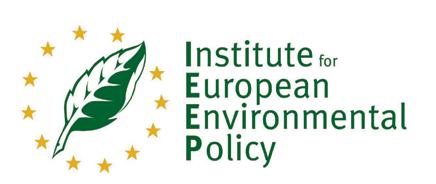
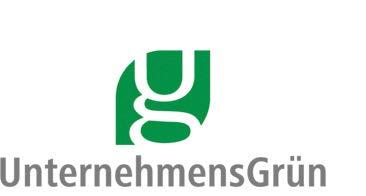

Our partners in ACES are:











For 25 years, progressive companies have come together through our Business Circle to share insights, debate policy and engage with stakeholders on business critical sustainability issues.


2015-16 was Green Alliance’s most successful year of fundraising to date, achieving almost 40 per cent growth on 2014-15 income. Planned efforts to expand to increase impact and diversify funding sources were successful.
We won our first major grant from a European funder, the MAVA Foundation, doubling trust income to £777,133. We also achieved higher income from both business (up by ten per cent, to £431,967) and public sector sources (up by 6.5 per cent, to £138,548) despite a challenging funding environment. Support from individual members, whilst a small percentage of total income, grew by 20 per cent.
Unrestricted income increased in 2015-16 by over £286,000 enabling much needed flexibility and investment in infrastructure and capacity to ensure that Green Alliance remains well equipped for development and to face future challenges.
This included making plans for a move to a new office in the summer of 2016.
Our Resource Stewardship and Low Carbon Energy themes attracted higher levels of funding than the previous year. We launched two new alliances: a new strand of work, based in Brussels, focused on strengthening circular economy policy in Europe and an ambitious project reframing the UK debate around clean energy. More details of these projects and other work can be found in the activity report from pages 5-25.
Our overall expenditure increased by almost eight per cent in 2015-16 to £1,274,276, and our expenditure on charitable activities increased by 9.5 per cent.
These accounts are a summary of the information extracted from the annual accounts and contain information relating to both the Statement of Financial Activities and the Balance Sheet.
These summarised accounts may not contain sufficient information to allow for a full understanding of the financial affairs of the charity. For further information, the full accounts, which received an unqualified audit opinion, should be consulted. These are available to view on Green Alliance’s website and copies can be obtained from the company secretary at Green Alliance.
The annual accounts were approved by the trustees on 28 September, 2016, and have been submitted to the Charity Commission and Companies House.
On behalf of the directors/trustees of The Green Alliance Trust (known as Green Alliance).
Dame Fiona Reynolds, chair Philip Parker, hon treasurerWe have examined the summary financial statement for the year ended 31 March 2016 set out on pages 30 and 31.
The trustees are responsible for preparing the summarised annual report, featured in this annual review, in accordance with applicable United Kingdom law. Our responsibility is to report to you our opinion on the consistency of the summary financial statement within this annual review with the full annual financial statements and the directors’/trustees’ report, and its compliance with the relevant requirements of section 427 of the Companies Act 2006 and the regulations made thereunder.
We also read the other information contained in the annual review and consider the implications for our report if we become aware of any apparent misstatements or material inconsistencies with the summary financial statement.
We conducted our work in accordance with Bulletin 2008/3 issued by the Auditing Practices Board. Our report on the charitable company’s full annual financial statements describes the basis of our opinion on those financial statements and on the directors’/trustees’ report.
In our opinion the summary financial statement is consistent with the full annual financial statements and the Trustees’ Report of The Green Alliance Trust for the year ended 31 March 2016 and complies with the applicable requirements of section 427 of the Companies Act 2006 and the regulations made thereunder.
We have not considered the effects of any events between the date on which we signed our report on the full annual financial statements 28 September 2016 and the date of this statement.
haysmacintyre
Statutory
Auditors26 Red Lion Square
London WC1R 4AG
The Green Alliance Trust Statement of financial activities for the year ended 31 March 2016 (incorporating the income and expenditure account)
All activities relate to continuing operations and the Statement of Financial Activities includes all gains and losses recognised in the year.
The full financial statements were approved and authorised for issue by the trustees on the 28 September 2016 and signed on their behalf by
Fiona Reynolds, Chair Philip Parker, Hon. Treasurerwork in 2015-16.
Funding was received from the following organisations in 2015-16:
£1,000 to £5,000
Alstom
BP International Campaign for Better Transport Campaign for Rural England
Dong
FCL Global Friends of the Earth
Heathrow Airport
IEEP
RES
Resource Association
Scottish Power
Shell WRAP
£5,001 to £20,000
Calouste Gulbenkian Foundation
UK
Cardiff University
Christian Aid
Esmee Fairbairn
King’s College London
O2
The Rothschild Foundation
The Wildlife Trusts
WWF
WWF Scotland
Zero Waste Scotland
£20,001 to £40,000
Boots
E.ON
E3G
ESPRC
Greenpeace
HVM Catapult
John Ellerman Trust
Joseph Rowntree Charitable Trust
KestrelMan Trust
Kingfisher
Kyocera
National Grid
NERC
RSPB
Schroder Foundation
Siemens
Statoil
The Ashden Trust
The Samworth Foundation
Unilever
Viridor
Westminster Foundation
We are grateful to every organisation and individual who contributed to our
£40,001 to £60,000
Innovate UK
£60,001 to £100,000
Nestlé
£100,000 to £150,000 National Trust
£150,000 to £200,000
European Climate Foundation £200,000 plus
MAVA Foundation
We are very grateful to the following individuals who gave their time and skills to Green Alliance under our internship programme during 2015:
Nic Craig
Matt Burling
Kate Anson
Rachael Blundell
Steven Rae
No individual gave more than £1,000
Danielle Kopecky
India Redrup
Tatiana Biktimirova
The internship programme was superseded by our graduate scheme in September 2015. Under this scheme we offer year long paid opportunities for young people to develop skills and gain valuable experience. It reflects our strategic aim to nurture the next generation of environmental leaders and our commitment to improve equality of opportunity.
Our individual members include those active in our network, eminent professionals in the fields of environment, business and government, or those distinguished in their careers in other spheres who wish to support our work.
Annual membership: £40 Donor members regularly contribute above this amount.
Life membership: £500
Members (at September 2016)
Jamie Abbott
John Adams
Syed Ahmed
John Alker
Dr Amal-Lee Amin
Tim Ash Vie
Anne Ashe
John Ashton
Robert Atkinson
Alison Austin OBE
Dr Mark Avery
Janet Barber
David Barker QC
Alison Barnes
Phil Barton
Clive Bates
Lord Bath
Toby Belsom
Mr T Bendixson
Nick Bent
David Bent
Lord Berkeley
Dr Robin Bidwell CBE
Sean Birch
Jennifer Bird
Dr John Blunden
Ronald Blythe
Dr Stephen Bolt
Duncan Brack
Tim Branton
Chris Brown
Tom Burke CBE
Kate Burningham
Sarah Burton
Roger Burton
Danielle Byrne
Alison Cairns
Lord Cameron of Dillington
Mark Campanale
Pamela Castle OBE
Harry Chichester
Maureen Child
Giles Chitty
Chris Church
Dr M J Clark
Roger Clarke
Lindsey Colbourne
Yolanda Collins
Tony Colman
Tim Cordy
Martin Couchman OBE
Paul Court
Roger Cowe
John Cox CBE
Roger Crofts
Kate Davies
Hannah Dick
Julie Doyle
Stephanie Draper
Christine Drury
Jane Durney
Mairi Duthie
John Elkington
Louise Every
Bill Eyres
Malcolm Fergusson
David Fitzsimons
Catherine Fookes
Tim Foxon
Justin French-Brooks
Ray Georgeson
Martin Gibson
William Gillis
Sara Giorgi
John Gordon
Matthew Gorman
Dr Tony Grayling
David Green OBE
Prof Michael Grubb
Nigel Haigh OBE
Stephen Hale OBE
Paul Hamblin
Tony Hams OBE
Helen Harris
David Harris
Sir Peter Harrop
Nick Hartley
Dr Paul Hatchwell
Ian Hawking
Dirk Hazell
Barbara Herridge
Roger Higman
Julie Hill MBE
Dr Mayer Hillman
David Hirst
Hannah Hislop
Mark Hodgson
Jana Hofmann
Paula Hollings
Sarah Holloway
Stuart Housden
Alex House
Catherine Howarth
Rupert Howes
Jim Hubbard
Robert Hull
David Hutchinson
Robert Hutchison
Merlin Hyman
Prof Tim Jackson
Julian Jackson
Michael Jacobs
Becky James
Alex Jelly
Prof Nicholas Jenkins
Stanley Johnson
Claire Jones
Terence Jones
Terry Jones
Prof Andrew Jordan
Tristram Keech
Sean Kidney
Angela King
Jean Lambert MEP
Pippa Langford
Lucinda Langton
Nicola Leahy
Jeremy Leggett
Dr Paul Leinster CBE
Hywel Lloyd
Robert Lowson
Simon Lyster
Ian MacArthur
Eleanor Mackay
Dr Tom Macmillan
Prof Richard Macrory
Harini Manivannan
Prof Aubrey Manning
Mark Mansley
Mari Martiskainen
Deborah Mattinson
Ed Mayo
Robert McCracken QC
Prof Jacqueline
McGlade
Dr Jim McQuaid CBE
Paul Meins
Morice Mendoza
Charles Millar
Peter Mitchell
Catherine Mitchell
Ed Mitchell
Karen Mitchell
Margaret MorganGrenville
Dr Elizabeth Ness
Adrian Newton
Dinah Nichols
Adam Ognall
Tom Oliver
Prof Timothy
O’Riordan
Derek Osborn CB
Prof John Page
Cllr Nicholas Paget-
Brown
Philip Parker
Sara Parkin
Dr Doug Parr
Anthony Paterson
Prof R J Pentreath
Anthony Perret
Charles Perry
Craig Peters
Hazel Phillips
Adrian Phillips CBE
Iain Pickles
Prof Nick Pidgeon
Ben Plowden
Anita Pollack
John Pontin
Don Potts
Mark Pritchard MP
Alison Pritchard
Denis Pym
Dr Kate Rawles
Trewin Restorick
Dame Fiona Reynolds
DBE
David Richards
Michael Roberts
James Robertson
Archie Robertson
Nick Robins
Neil Rotheroe
Phil Rothwell
Prof Stephen Salter
Prof Philippe Sands
Jenny Saunders
Diana Schumacher OBE
Paul Scott
Bhavika Shah
Juhi Shareef
Yasmin Shariff
Ben Shaw
David Sinclair
Jonathan Sinclair
Wilson
Rita Singh
Prof Jim Skea
James Skinner
Prof Peter Smith
Stephen Somerville
Steve Sorrell
Dave Sowden
Godfrey Spickernell
Martin Spray
Ben Stafford
Ralph Steadman
Clym Tomas
Stephenson
Lord Stevenson
John Stewart
Andrew Stirling
Neil Stockley
Martin Stott
Daisy Streatfeild
Joss Tantram FRSA
Dr Richard Tapper
Derek Taylor
Clare Taylor
Tessa Tennant
Guy Thompson
Alison Tickell
Stephen Tindale
Dr Bruce Tofield
Ben Tuxworth
Richard Usher
Annette Van Der Kolk
Jane Vaus
Jennifer Ware
Dr Michael Warhurst
Andrew Warren
Anne Weir
Alan Wheeler
Dr Rowan Whimster
Prof David Wiggins
Hugh Williams
Rebecca Willis
Prof James Wilsdon
Nicholas Wilson
Giles Wyburd
Sir Graham Wynne CBE
Lady Young
Donor members
Andy Atkins
Anthony Bourne
Richard Burnett-Hall
Tony Burton
Philip Douglas
Jack Easton
Prof Paul Ekins
Stephen Gee
Dan Hamza-Goodacre
Rachel Huxley
Ben Jewell
Dorothy MacKenzie
Peter Madden
Duncan McLaren
Graham Meeks
Prof John Murlis
Sir Jonathon Porritt CBE
Jim Potter
Dr Andrew Purkis OBE
Alister Scott
Philip Sellwood
Neil Sinden
Shaun Spiers
David Still
Dr Robin Stott
Gillian Thomas
Jonathan Wallace
Dr Steve Waygood
Kay West
Sheena Will
Life members
David Andrew
Dr Robert Barrington
Katherine and Ben Bell
Bernie Bulkin
James Cameron
Rodney Chase CBE
Ian Christie
Andrea Cook OBE
Dr Nick Eyre
Zac Goldsmith MP
Matt Gosden
David Green OBE
Emma Howard Boyd
Paul Jefferiss
Colin le Duc
Thomas Lingard
Michael Massey
John Midgley
Alice Page
Michael Palin
MT Rainey
Matthew Rhodes
Chris Rose
Penny Shepherd
Lord Thomas of Gresford
Dr Tom Tibbits
Philip Wolfe
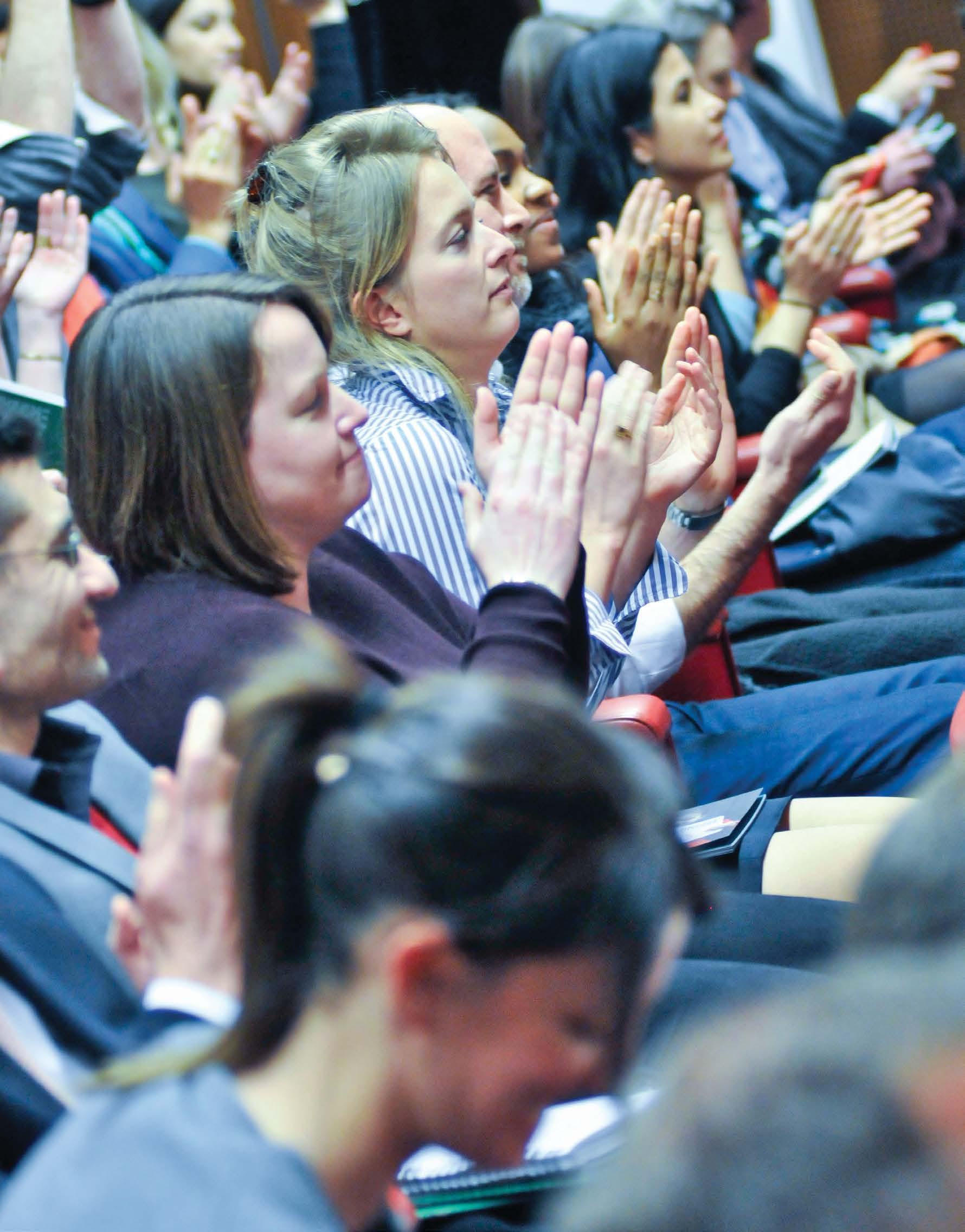
Please note: our Creative Commons licence does not cover the use of any photographic images featured in this report which are subject to separate copyright and must not be shared or copied without permission.
Green Alliance
11 Belgrave Road, London, SW1V 1RB
020 7233 7433
ga@green-alliance.org.uk
www.green-alliance.org.uk
blog: greenallianceblog.org.uk
twitter: @GreenAllianceUK
The Green Alliance Trust
Registered charity no. 1045395
Company limited by guarantee
(England and Wales) no. 3037633
Registered at the above address